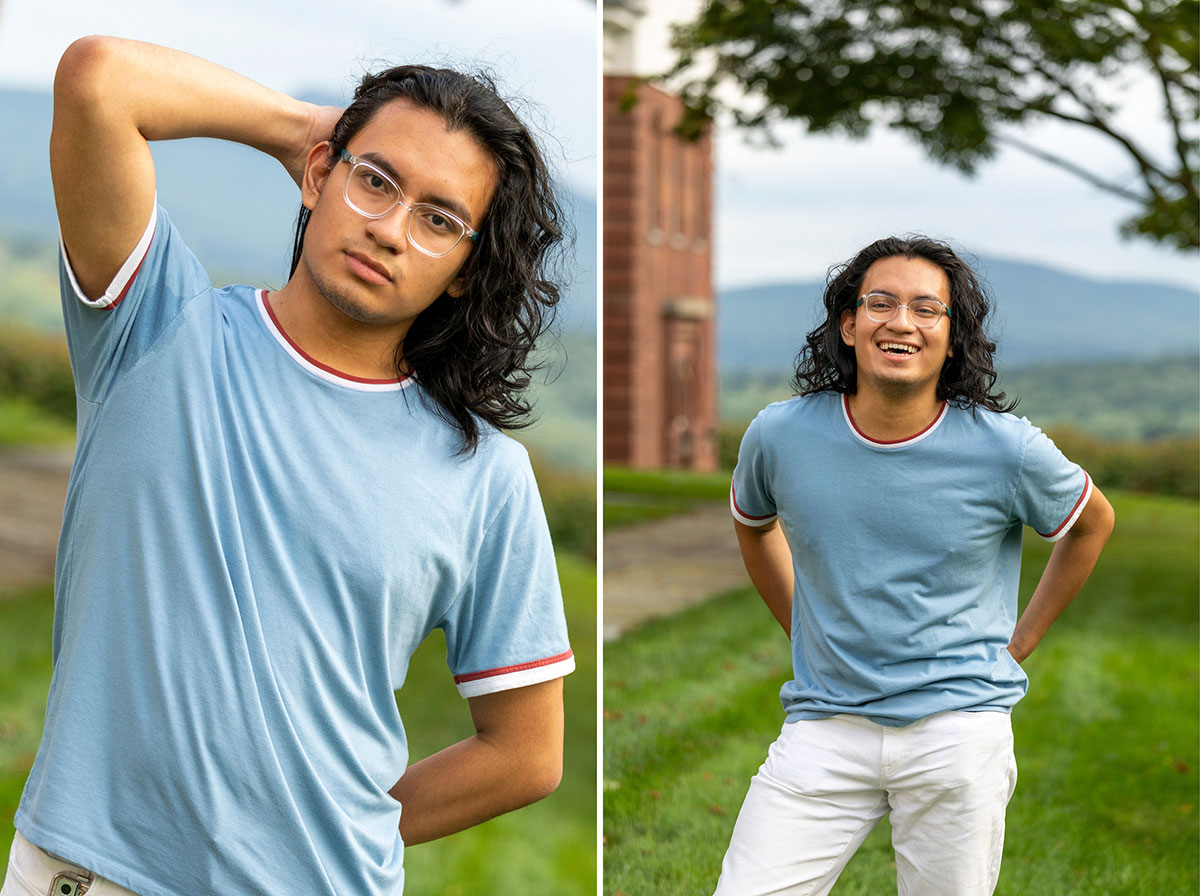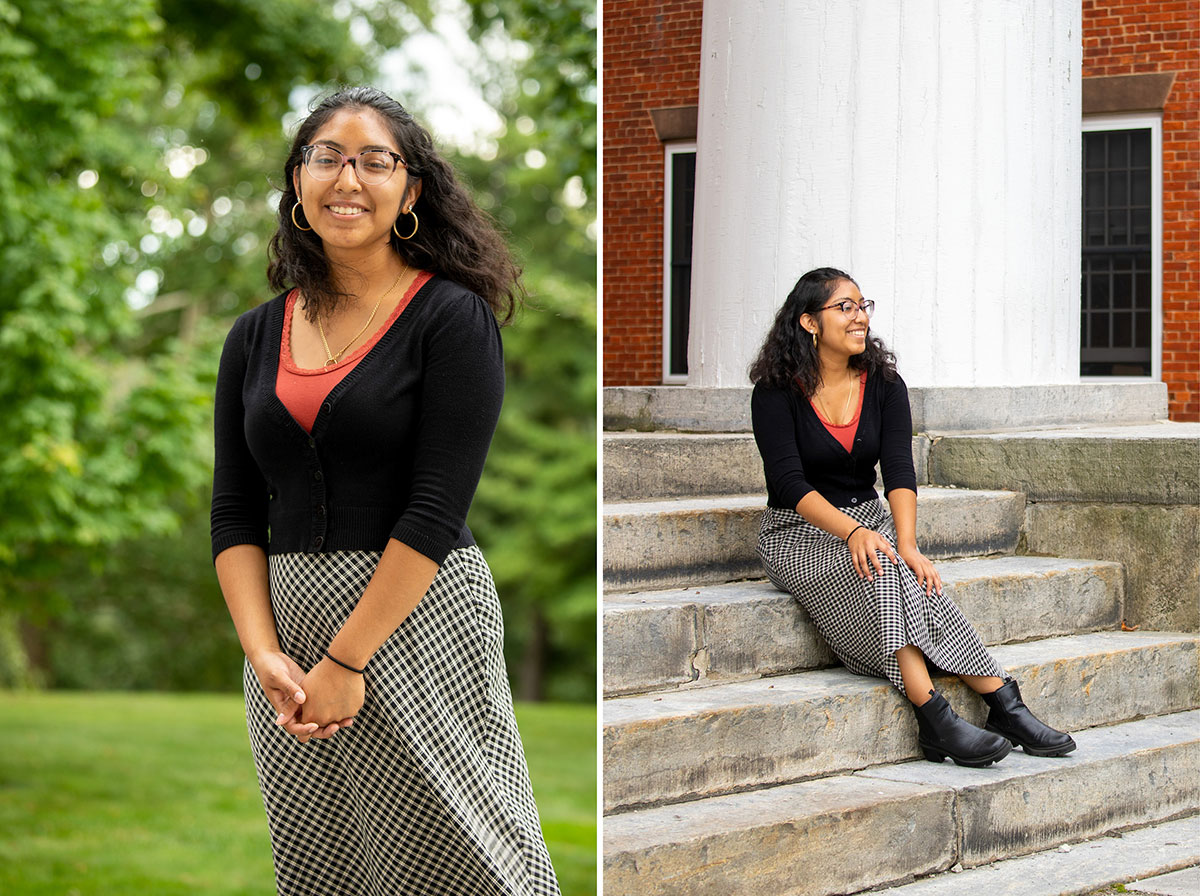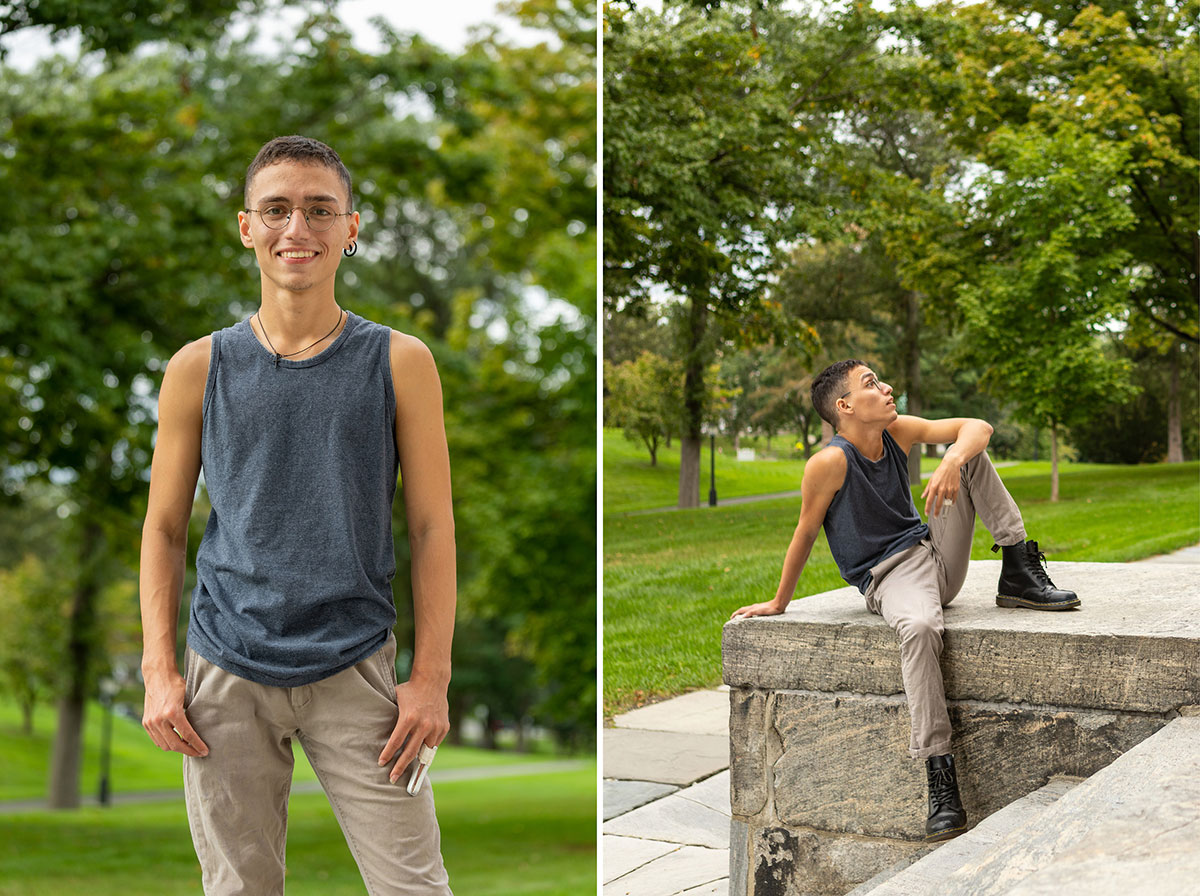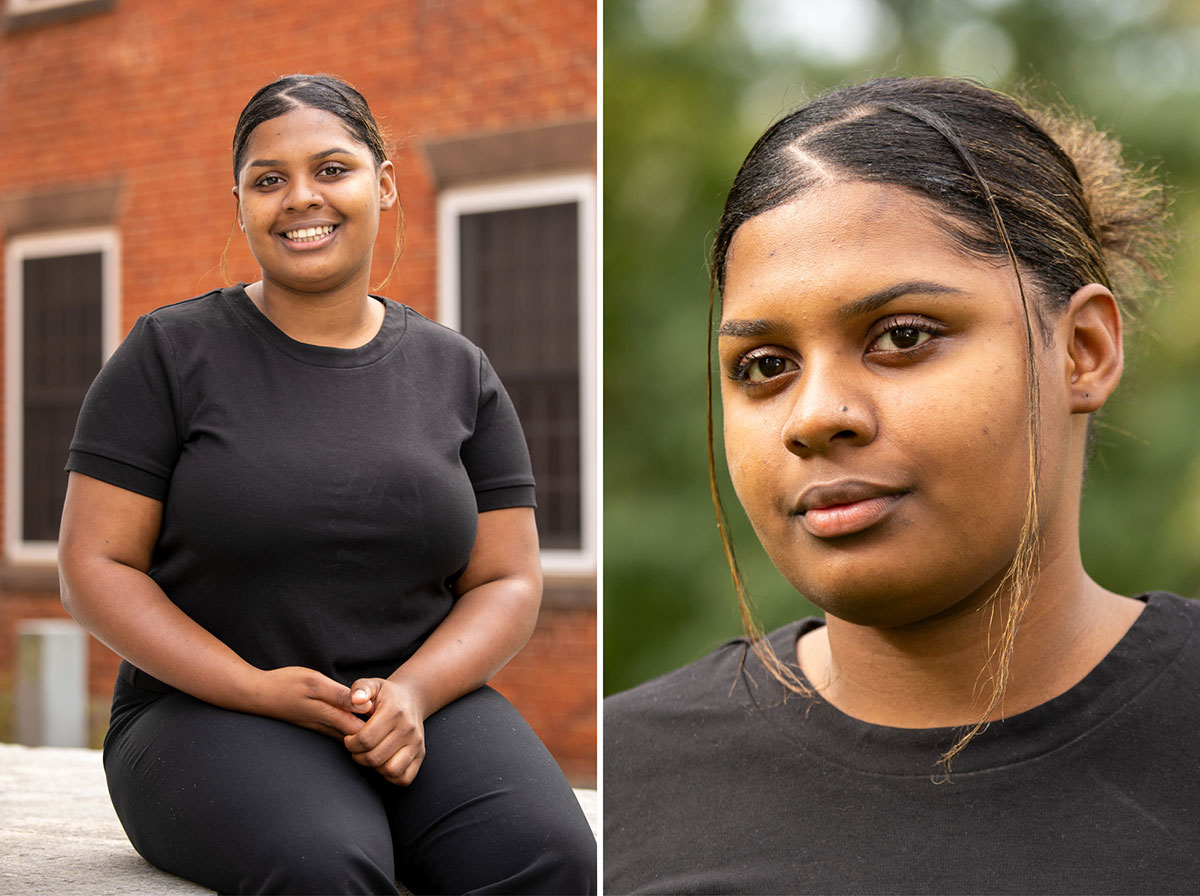Jennifer Fuentes Rodriguez ’22
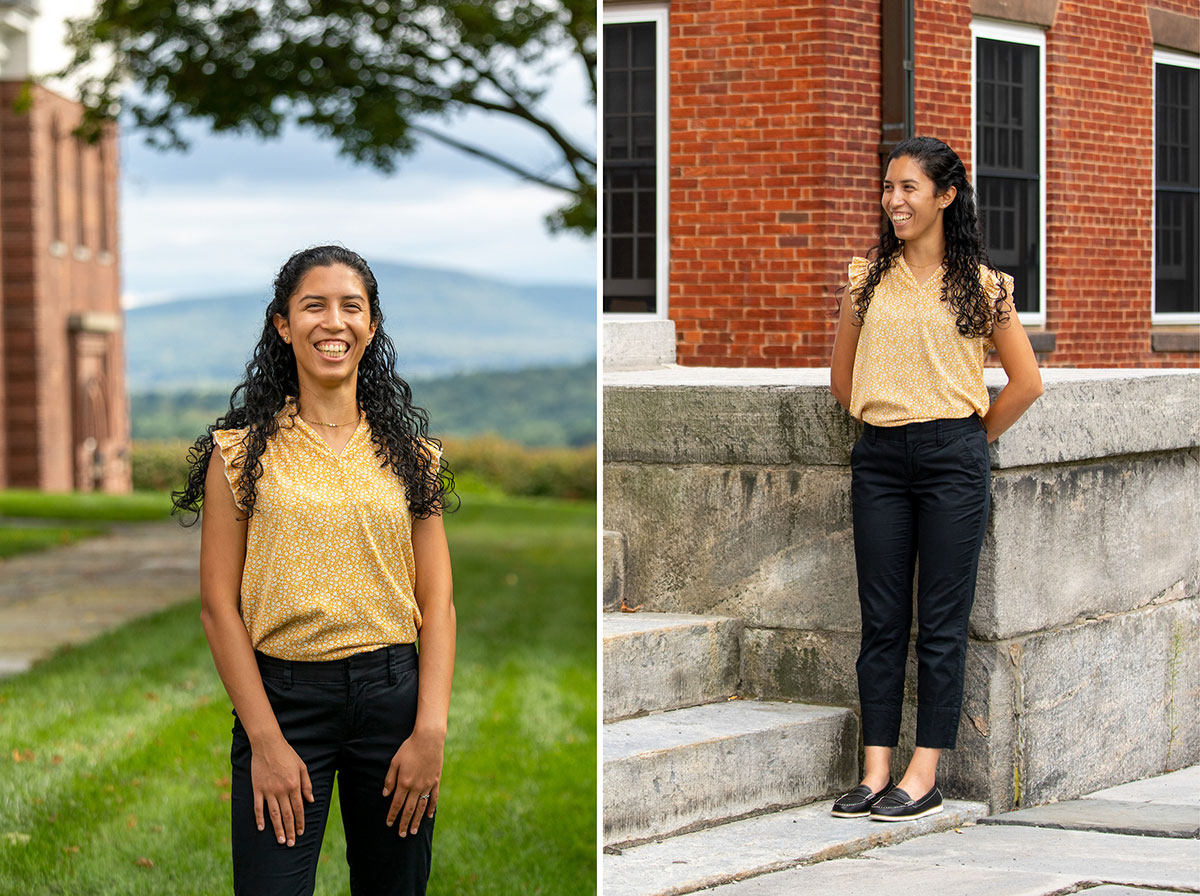
Majors: Political science and Asian languages and civilizations
Nationality: Honduran
On her relationship to the terms Latino/Latina/Latinx:
“After coming to the United States, especially when I was in high school, is when I started really hearing about Latino/Latina. Before that, I kind of just thought: This is who I am. I was born in Honduras, and I came to the United States [at 8 years old]. It's just my story. But then I found a group of people who also shared similar stories, who had crossed the border to come to the United States and shared similar foods. [So I found] a community with them. Then, coming here to Amherst, I also found the same type of community and more emphasis on your culture and your identity. So, I’ve been exploring or getting to know what it means to be Latina. But to me right now, it just means a community of people who share a similar background [to what] I grew up with.”
